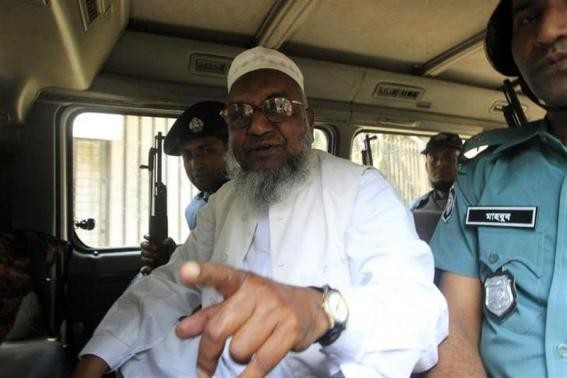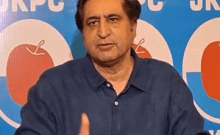
The Bangladeshi Supreme Court has upheld the death sentence of controversial Islamic leader, Abdul Kader Mullah.
The Islamic leader was intially scheduled to be executed on early Wednesday before he received a last minute reprive.
Mullah was convicted in February of crimes against humanity during the country's 1971 war of independence from Pakistan.
The Jamaat-e-Islami assistant secretary general was to be executed in Dhaka's Central Jail at one minute past midnight on Wednesday morning.
But the Supreme Court judge had agreed to delay his execution after his defense lawyers said some legal procedures had not been completed.
The judge dismissed Mullah's appeal to review his sentence and said this was the time for his execution.
Mollah is a senior member of the Jamaat-e-Islami party, which is barred from contesting elections but plays a key role in the opposition movement alongside the Bangladesh nationalist Party (BNP).
Previous rulings by the International Crimes Tribunal (ICT) set up in 2010 to investigate atrocities during the 1971 conflict, sparked deadly clashes across the South Asian nation of 160 million population.
Violence across the country broke out on Tuesday even after Bangladeshi government had tightened security ahead of the scheduled execution.
In the southern town of Feni, a protester was shot dead after Jamaat supporters hurled petrol bombs at police, reports suggest.
Jammat activists also torched vehicles and threw petrol bombs in the capital, Dhaka and the city of Chittagong.
But hundreds of supporters of the court also gathered in Dhaka on Tuesday calling for the immediate execution of Mullah. Human rights groups had warned that Bangladesh could be breaking international law, if the execution was carried out without giving him the right for a review, a fact that forced Supreme Court to delay the execution until the next day.
His trial earlier this year sparked widespread protests from Jamaat supports who accused the government of undergoing a political vendetta as several other senior leaders of the party have also been imprisoned.
Although Mullah denies all the charges against him, he is accused of being a member of a secretive force called al-Badr during the war of independence. The shadowy force was allegedly created by Jamaat, which was opposed to breaking away from Pakistan and being an independent country in 1971.
Mullah is accused of being behind a string of killings including mass killings in the Mirpur area of Dhaka. Al-Badr group is accused of kidnapping and murdering more than 200 Bengali intellectuals in the final days of the war.

















